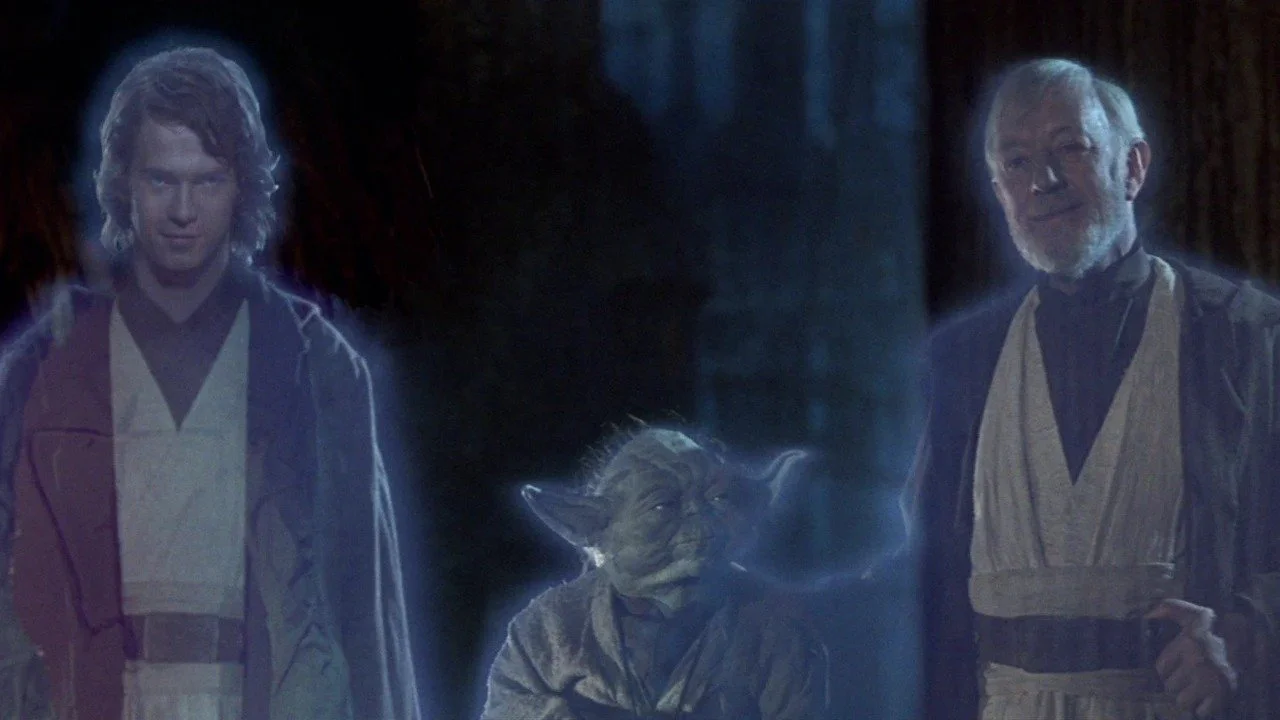Why Making Anakin A Force Ghost Was A Bad Idea
Force ghosts are the epitome of becoming one with the Force and finding true balance within yourself, life, and the universe. Unfortunately, it is a technique that very few Jedi have ever managed to obtain. Yet, this is in many ways the ultimate way to achieve eternal peace and happiness. So then why did Anakin Skywalker, of all people, become a force ghost?
Sure, there is a reason for it canonically, that he was pulled into it by the other Force ghost. And the fact that Lucas loved happy endings full of hope. However, what does it really say when Anakin Skywalker, the person who became Darth Vader, who spent a good twenty years doing horrible things to the galaxy, becomes a force ghost? It's almost to say that you still get eternal bliss of force heaven as long as you do one good deed. In this author's opinion, it would have been better if Anakin had not returned as a Force ghost and would have made for a more substantial arc and a more nuanced take on redemption in Star Wars.
READ NEXT: The Surprising Character Who Once Saved Darth Vader And Lost Their Life For It
Redemption is a strange concept, not just in fiction but also in life. When one genuinely reaches the moment of redeeming themselves for any and all sins they may have committed in a lifetime. On the other hand, atonement is when one tries to make amends even if there is no way to know if you'd be forgiven or not.
Vader's last good deed was to save his son's life and ultimately defy the Emperor. Certainly, a good deed, but not enough to wipe away a lifetime of murder and evil, the likes of which the galaxy has never seen before. So once he saves Luke then dies, he doesn't redeem himself so much as he does one good deed and finally lets his anger go for once in his life and gives into love.
From a story perspective, this is all well and good. From Vader's death to the Endor scene, one can have a more nuanced and personal take on Vader's redemption. It makes it a more personal tale between father and son, and whether or not others will choose to forgive Anakin or not will be something for each individual to explore on their own. Luke, after all, feels like a forgiving person, and if he chooses to forgive his father, then so be it, that is his choice and his alone.
However, once you add in the spiritualism of a Force ghost, then things get tricky. Because the indication is that being a Force ghost is something that means you have achieved spiritual enlightenment. It is almost the equivalent of going to heaven. What one wants to personally believe what happens to bad people after they die is up to them. So a film that says Vader, second only to the evil Emperor, would achieve such enlighted aftermath may seem a bit problematic, making a more nuanced discourse around Vader goes away in favor of a more direct answer.
This is where leaving things open-ended sometimes makes for better storytelling. For example, showing Anakin becoming a force ghost takes away the audience's choice to decide if Vader was redeemed or not. As a result, the nuanced case of redemption or forgiveness is taken away and instead replaced by a more in-your-face analysis of the character.
Plus, it reduces redemption in doing one good deed instead of self-betterment and profound emotional growth. Sometimes being more subtle makes for a stronger story, and sometimes death and not being a ghost makes for a stronger ending to an overall strong character.


